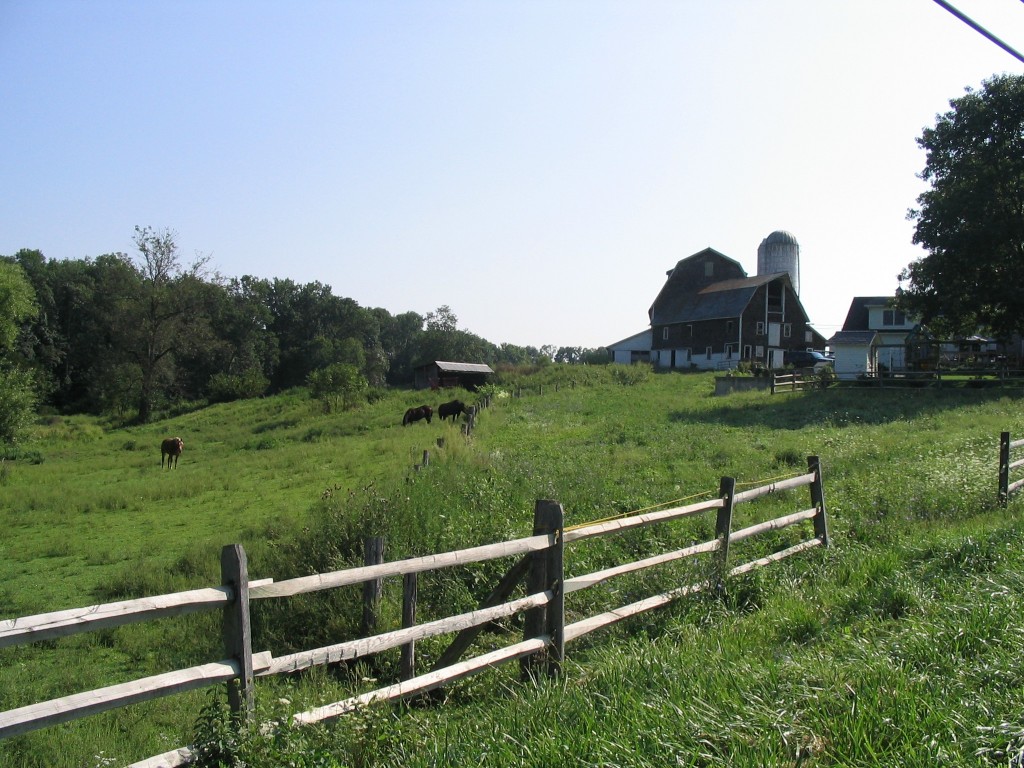
UPDATE (April 10, 2017): On Friday, April 7, the Federal Energy Regulatory Commission (FERC) issued a final environmental impact statement for the PennEast pipeline. For more on this latest development, read our press release here.
Recent articles: http://www.mycentraljersey.com/story/news/local/land-environment/2017/04/07/penneast-step-closer-approval-groups-plan-sue/100176130/ https://www.law360.com/articles/911159/ferc-gives-final-enviro-statement-to-1b-penneast-pipeline
When people think of New Jersey, rolling hills, horse pastures, and 18th-century colonial homes are not the first things that come to mind. However, these places — one of our state’s best-kept secrets — do exist. Preservationists have worked for decades to keep these iconic sites intact for future generations. These unique resources, which have state and federal protection, deserve to be safe from development and damage. By threatening to destroy over 4,000 acres of previously preserved lands (including private property, taxpayer-funded lands, and historic sites), the PennEast pipeline puts this open country at risk. EELC’s clients the New Jersey Conservation Foundation and the Stony Brook Millstone Watershed Alliance are opposing the PennEast pipeline because it threatens preserved property, and because the pipeline is not part of a rational plan for gas transport in New Jersey, but is instead one of many pipelines planned to cross the state as many different pipeline companies vie to profit off the gas from the Marcellus Shale.
For Alix Bacon, Regional Manager for New Jersey Conservation Foundation (NJCF), PennEast cannot be stopped soon enough. “People come to my office door crying every day,” she says, noting that PennEast jeopardizes their beloved family farms and livelihoods. Bacon adds that some farms in PennEast’s path are family-owned operations dating back hundreds of years. She warns that people across the social spectrum will be affected, including single parents and low-income residents who depend on their farms for additional income. While PennEast proposes “compensation” to affected landowners, they only provide payment for a one-time loss in land value. The amount does not include future loss from decreased crop yields, nor the value of the unusable land above and adjacent to the pipeline. Compensation provides some relief, but as the tears that Ms. Bacon has witnessed show, money can never replace family and cultural history.
The Rosemont Rural Agricultural District in Hunterdon County, which is on Preservation New Jersey’s list of 10 Most Endangered Historic Places in New Jersey 2015, is one among the many areas imperiled by PennEast. “Rosemont’s incredible viewshed, with beautiful stone walls, rolling pastures, horses, and old red barns draws flocks of visitors,” NJCF’s Bacon says, and adds, “Who would want to visit a boutique farm or quaint ‘pick your own’ place with an unsightly pipeline gash through the center?” Fisher Farm, a historic farm on Main Street in Delaware Township, is one example of such a farm put at risk by PennEast. The bucolic landscape of this family-run farm would be disrupted by PennEast, as would the aesthetics of many other farms in Hunterdon County. Collectively, Hunterdon County has 30,490 acres of preserved farms distributed across 380 farms in 16 municipalities. In that county alone, PennEast would eliminate over 2,000 acres of farmland currently protected by conservation easements.
Biological and ecological threats from PennEast are another real concern. Temperatures will rise above and around the ground where the pipeline lies. This seemingly minor change can alter crops and prevent them from growing. The construction process itself also disrupts the fragile surrounding ecosystem. Soil compaction impairs crop growth and production, as does soil erosion and contamination from leaks or drilling fluid releases. When a natural gas pipeline explosion occurs, as in the March 2016 accident in Pennsylvania, fires can break out and destroy fragile ecosystems in minutes. Carbon dioxide emissions and methane leaks are other environmental hazards.
As discouraging as PennEast’s potential threats are, there is hope. Seventy percent of landowners in New Jersey are fighting hard to prevent this pipeline from imperiling their land and their livelihoods. Numerous federal and state agencies have voiced opposition to the pipeline, citing economic, health, safety, and environmental concerns. EELC, fighting the legal battle against PennEast, is giving the environmental community voice in front of pipeline regulator FERC.
Ultimately, PennEast would deliver natural gas to New Jersey residents already served by existing pipelines. But in a race to save New Jersey’s few open spaces, is it worth sacrificing our agricultural and social history to line the pockets of a private company?



